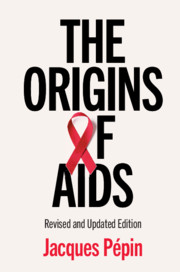'Superb ... Pépin rightly argues that, apart from social factors promoting HIV spread, inherent properties of the virus must determine its fitness to become pandemic. He also provides the best analysis I have read of the declining HIV-2 epidemic in West Africa.'
Source: Nature
'Extensively referenced, [this] well-written book reads like a detective story, while at the same time providing a didactic introduction to epidemiology and evolutionary genetics. As far as the origins of AIDS are concerned, unless some completely new evidence emerges, it will be difficult to come up with a better explanation than Pepin's.'
Source: Science
‘A remarkable feat … works out the most likely path the virus took during the years it left almost no tracks'.
Source: The New York Times
'An impressive feat of scientific scholarship … absorbing throughout, interweaving quantitative data with historical narrative and lively biographies.'
Source: The Lancet
‘A model study of epidemiology, microbiology, genetics, and social and cultural history … The Origins of AIDS bears brilliant witness to the costs of living in a world plagued by emerging and re-emerging infectious diseases'.
Source: The New Republic
'This is scientific history at its most compelling … He writes with grace and feeling, and makes accessible the scientific and clinical issues. Above all, he comes across as a humane and caring doctor. This is a major contribution to our understanding of the scourge that has defined our times.'
Source: The Times Literary Supplement
'This book takes on a journalistic quality, supported by solid evidence including maps, illustrations, graphs, etc. Such a precise analysis is more necessary than ever as the search for the origin of the recent COVID-19 pandemic has demonstrated. Abundance and accuracy of information, careful analysis, and clear and fluid presentation together with a deep knowledge of the topic are more welcome than ever - not only for the understanding of AIDS, but also for the reaffirmation of the value of science in a time when its benefits to society are so widely contested.’
Alain Touwaide
Source: Doody's Reviews





